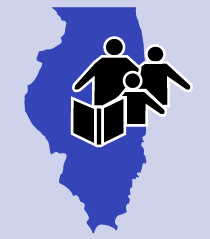
Planning for Summer
The summer can be a fun and challenging time. It can be liberating to not have school or daily routines. Without formal scheduling guidelines, you can choose your preferred activities. However, it can also be difficult to identify such activities, especially without guidance or suggestions. Below, we list some suggestions for summer activities.
Capitalize on Your Child’s Strengths and Preferences
As a parent, you know your child best. Think about your child’s favorite activities, places, and people. Try to identify summer activities that align with your child’s strengths and preferences. For example, if your child loves water play, consider visiting a local children’s museum that has water activities, going to the local pool, and organizing water activities in your back yard.
Meet Your Child’s Needs
Summer can also be a great time to creatively think about how to address your child’s needs. For example, think about your goals for your child. Do you want your child to eat independently? Do you want your child to have more words? Now, in light of these goals, identify activities that may provide a platform to meet them. At right is a list of potential goals and corresponding activities
Enjoy the Summer
As parents of children receiving early intervention services, it can be easy to stay in “therapist” mode. Many parents recognize the need to spend time with their children without working toward certain goals. To this end, you may want to look at these links written by parents of children with disabilities about how to balance responsibilities:
Regardless of the activities you pursue, make sure you enjoy the time being with your child this summer!
| Goals | Activities |
|---|---|
| Improve fine motor skills | Use Play-Doh to create items (e.g., bracelets), use tongs to pick up small items (e.g., buttons), encourage your child to turn pages in a book, practice coloring |
| Improve gross motor skills | Go to the park, practice jumping, go down the slide, try a tricycle, walk to a neighbor’s house |
| Improve receptive and expressive language skills | Ask your child to request what he/she wants to do, encourage your child to respond to questions, practice saying “hello” and “bye bye” to new people you meet |
| Increase play skills | Identify play groups in the community, join local events for children, go to storytime at the local library |
Build Skills When Exploring Outdoors
Warm weather means it is a great time to explore the outdoors. Outside play is a wonderful opportunity to work on early intervention (EI) outcomes. Talk with your EI team about strategies and activities that may be especially useful for your family as you work on your EI outcomes. As you talk, you can brainstorm how everyday activities can become opportunities to practice new skills.
For example, consider the fun warm weather pastime of blowing bubbles. Infants and toddlers love to see bubbles magically fly from a bubble wand. Did you know that when you are blowing bubbles you are working on many skills, including:
- Oral motor skills: Blowing bubbles develops the small muscles in your child’s mouth as they pucker their lips and blow bubbles. Strengthening these muscles is important for developing their ability to form clear sounds when speaking and to eat and swallow safely.
- Gross motor skills: Your child can reach to pop bubbles and build hand-eye coordination as they reach. Walking toddlers and infants may follow the bubbles on their feet and practice their moving skills.
- Eye tracking skills: Younger infants and toddlers learn to follow the bubbles with their eyes.
- Vocabulary and concept development: As you talk to your child about bubbles, you expose them to words such as clear, soapy, float, and pop.
- Cognitive development: When young children touch a bubble, it pops, giving them a chance to explore cognitive concepts such as cause and effect.
- Joint attention: Smiling and laughing together builds strong relationships and helps children learn to connect with others and discover shared interests. Who can help but smile as bubbles float by?
Be creative when you think of places for summertime play. The sandbox, the park, the community pool, the farmers market, and the zoo are all exciting places to explore in warm weather.
Let’s consider swimming. The pool is a great place to cool off and enjoy time together. Your EI team’s developmental or physical therapist can help you find the right equipment to help your child be safe in the water or teach you how to hold your child so you both feel safe and secure.
A trip the zoo or county fair might seem overwhelming, especially for a child with sensory challenges. Your EI team can help you find picture books to help your child become familiar with the upcoming experience and plan so the pace and timing of activities are enjoyable for all of your family members. Adaptations such as a picture schedule or noise cancelling headphones could help your child manage this new experience.
Your EI team can help you think of adaptations you may need to make to help your child successfully explore these spaces. They are a resource to help you think of equipment or strategies to add to your favorite summertime activities.
Through planning and teamwork with your EI team, you can be ready for a full summer of fun and learning!
Family Outcomes Survey
Improving outcomes for children and families is a priority of the Illinois Early Intervention Program. Every year we strive to learn just how effective early intervention has been in helping families achieve outcomes by sending out a “Family Outcomes Survey” to each family exiting the Early Intervention Program. The survey results help us understand the changes you experienced as a result of the early intervention services and support your family received.
Early intervention is intended to help both children and families. The Family Outcomes Survey questions focus on you understanding your child’s strengths, abilities, needs, and your ability to help your child develop and learn.
Family feedback helps us evaluate our program for future improvements and can also help your local CFC understand how families are benefitting from their work. When you receive the Family Outcome Survey in the mail, please answer the questions and mail it back in the self-addressed, postage prepaid envelop as soon as possible.
We greatly appreciate your input, as it is invaluable! Thank you in advance!
Related Resource(s)
- Tip Sheets: Set Me Up for Success!
- Resource Guides: Family Fun

